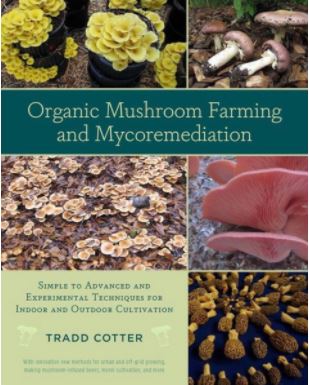Mycoremediation (from ancient Greek μύκης (mukēs), meaning "fungus" and the suffix -remedium, in Latin meaning 'restoring balance') is a form of bioremediation in which fungi-based technology is used to decontaminate the environment.
Fungal Degradation, another term used in literature, means fungi perform biodegradation by breaking down larger molecules into smaller ones that are more environmentally acceptable.
Various white rot fungi (Pleurotus, Trametes, Ganoderma, Phanerochaete) are able to decompose problematic industrial products such as plastics, petroleum and chemical dyes.
Videos
Classes and Workshops
Articles
Books
Last Updated: 2021-12-16
Fungal Degradation, another term used in literature, means fungi perform biodegradation by breaking down larger molecules into smaller ones that are more environmentally acceptable.
Various white rot fungi (Pleurotus, Trametes, Ganoderma, Phanerochaete) are able to decompose problematic industrial products such as plastics, petroleum and chemical dyes.
Videos
- PBS Learning Media (Grades 4-12) - Mycoremediation
Classes and Workshops
- NJMA does not have immediately plans to jump into mycoremediation education, due to lack of local expertise.
- Check course listings at Rutgers (used to offer a combo course every three years)..
- Check for lectures at New York Botanical Gardens.
Articles
- 2021 - The Fungus and Bacteria Tackling Plastic Waste, by Emma Woollacott, BBC News article.
- 2014 - Mushroom as a product and their role in mycoremediation
- 1997 - Fundamentals of Fungus, by Alfred R. Conklin Ph.D., Academix article on Soil and Groundwater cleanup, reprinted in NJMA News 27-5
Books
- Organic Mushroom Farming and MycoRemediation by Tradd Cotter, Published by Chelsea Green Publishing, 2014, This 2014 book's author has a website. See the book review in NJMA News 44-6.
Last Updated: 2021-12-16



